Responsible production & supply chains
Recover's worldwide operations are driven by the highest environmental and social standards. We work closely with our suppliers and business partners to improve traceability, transparency, social justice and environmental performance in the textiles supply chain.
2030 objectives:
- Recover™ operates according to the highest environmental and social standards and is third-party certified.
- Recover™ products and supply chains are traceable.
- Recover™ supply chains are sustainable and socially just.

Objective: Recover™ operates according to the highest environmental and social standards and is third-party certified.
To ensure we hold ourselves to the highest standard and seek for constant improvements and external approbation for our activities, we follow these initiatives:
Third party certifications and verification.
As leaders in sustainability, we are committed to improving the environmental performance of our products and solutions. Recover™is globally certified under the GRS: All Recover™ owned and licensed facilities go through annual GRS audits by third-party certification bodies, in which the chain of custody system is verified, as well as high standards for environmental, social, and chemical management. In this way, Recover™ can offer its customers a high-quality recycled and traceable fiber assuring that it has been processed in environmentally and socially responsible facilities. Our Recover™ facility in Spain was also certified under OCS during 2023, to assure the chain of custody of the organic fiber that is used to blend with recycled cotton for the REarth product that is produced in the Spanish hub.
Frequent brand audits.
Every year our Recover™ hubs undergo different audits promoted by our brand partners as part of their Code of Conduct. During these audits many areas of the company are evaluated, such as working conditions, HSE practices and environmental protection, and they are an important for building trust with our partners and providing full transparency of our practices.
Higg Facility Environmental Module (FEM) and Higg Facility Social & Labor Module (FSLM).
Higg FEM measures the environmental performance of an individual facility, helping manufacturers find opportunities for improvement and empowering them to manufacture more responsibly. The FEM assesses environmental impacts such as the environmental management system, energy consumption, water use, wastewater management, air emissions, waste generation and chemicals. Our FEM results in Spain were verified through a third-party onsite audit, obtaining a score of 70%. This means we are 10 points higher than the average for similar companies in Europe. The Higg FSLM allows facilities to assess conditions for its workers, helping ensure they are creating safe and fair working conditions. The FSLM assesses performance in several social areas related to human resources (recruitment, hiring, working hours, wages and benefits, treatment of workers and termination). In 2023, our Spanish hub performed the Higg FSLM assessment and verified the results through a third-party onsite audit, obtaining a score of 67.8%. This score is slightly higher than similar companies in Europe (66.36%).
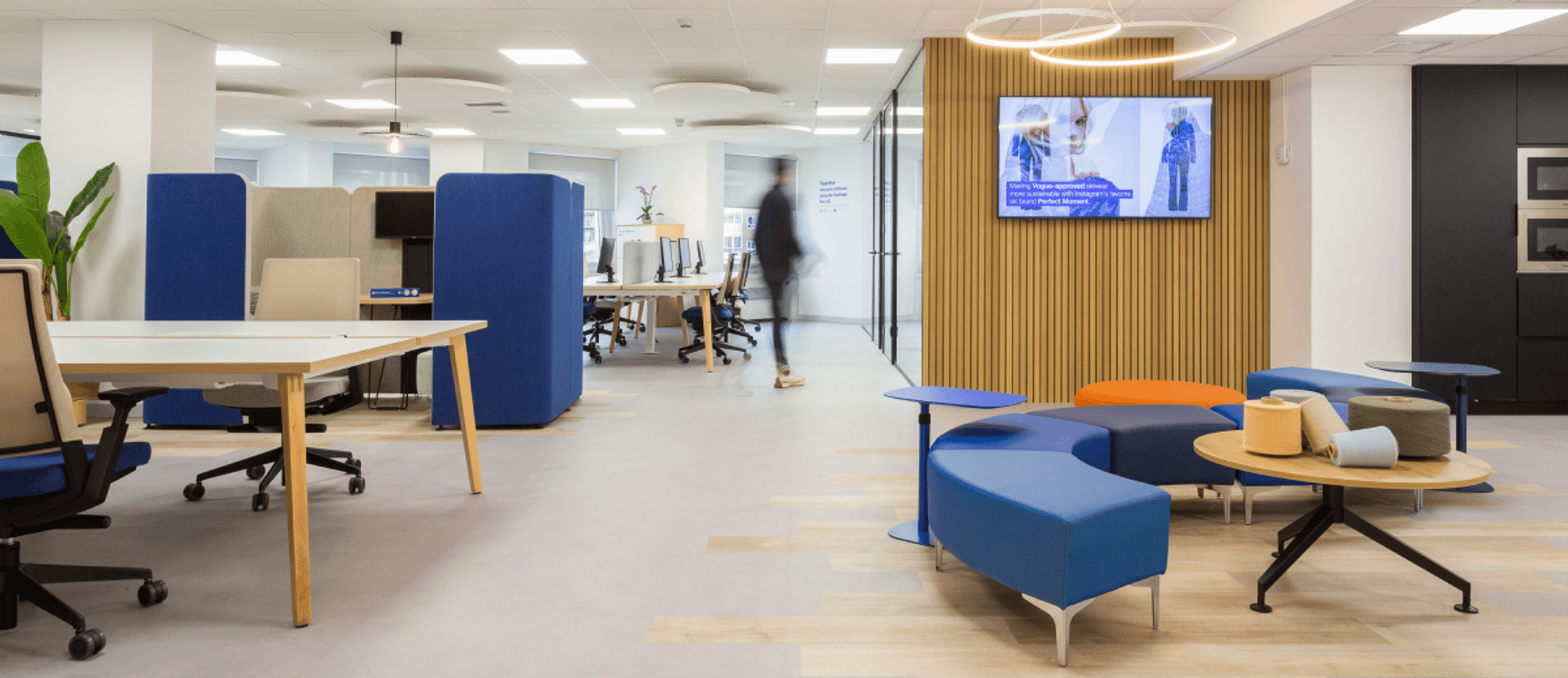
Objective: Recover™ products and supply chains are traceable.
Our aim is to have full traceability of all our material inputs, production processes and products. Due to the nature of the textile waste sector, tracking the origin of the post-industrial textile waste to the manufacturing facilities where it was generated is challenging. To overcome this issue, we have implemented the following initiative:
The Recover™ tracer.
In 2023, Recover™ continued developing the physical and digital tracer system of our fiber to become market ready at a global level. Using a physical tracer will allow Recover’s customers to verify the presence of Recover™ recycled cotton and support them in making credible and substantiated sustainability claims about recycled content. This traceability assurance will also enable us and our customers to be prepared for the introduction of the Digital Product Passport (DPP) requirements.
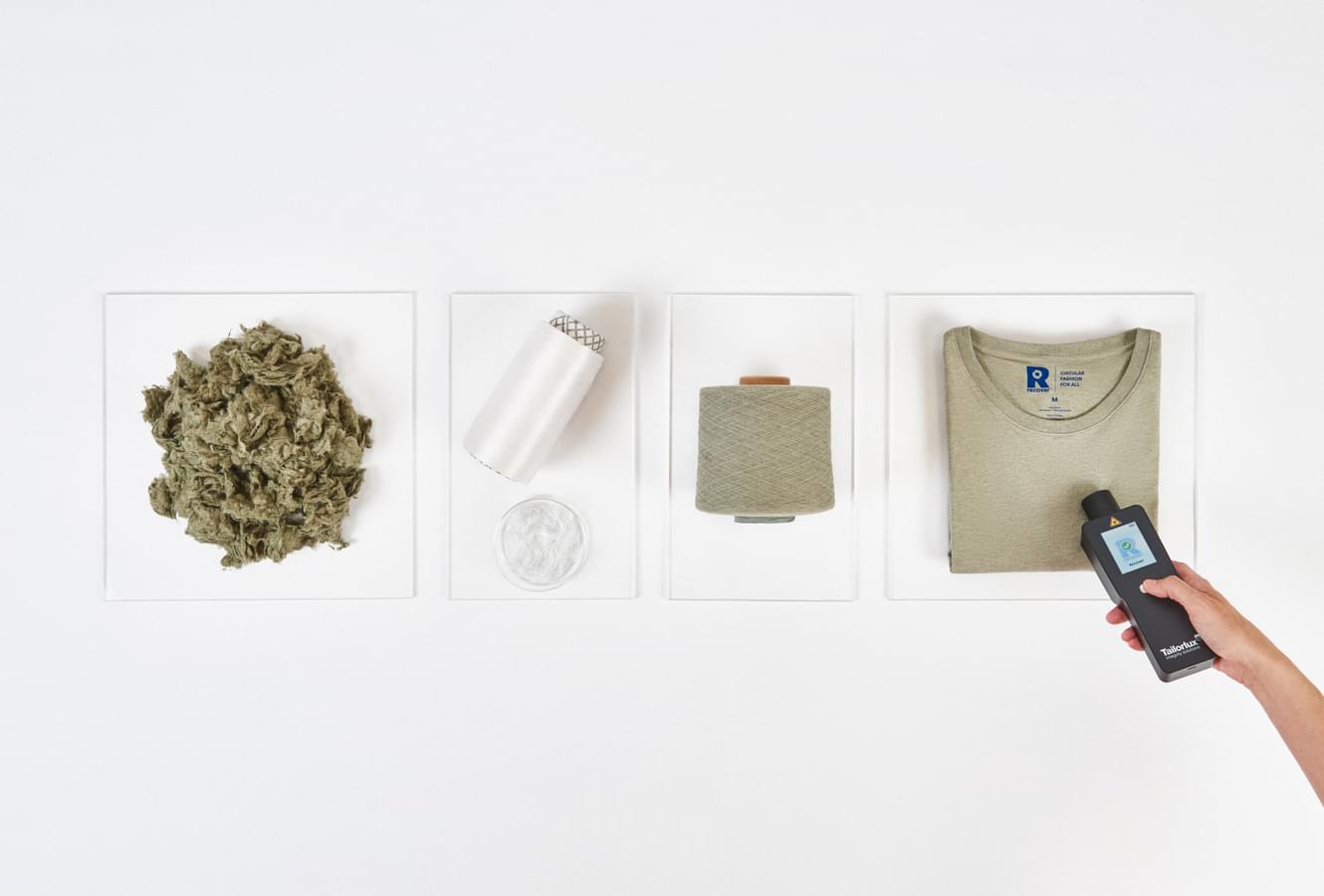
Objective: Recover™ supply chains are sustainable and socially just.
In addition to traceability, we aim to build strong and resilient supplier relationships to ensure compliance with Recover’s Code of Conduct for Business Partners to promote continuous improvement to achieve best practice environmental and social performance. To ensure compliance, we have implemented the following initiatives:
The Recover™ Responsible Sourcing Policy.
In 2023, our Procurement department approved and implemented the Recover™ Responsible Sourcing Policy, which covers from the sourcing of new suppliers to the possible termination of the relationship with a supplier. The objective of this Policy is to ensure that the supply chain in which Recover™ operates is in compliance with social (including Human Rights, Labor Rights & Decent Work) and environmental responsibilities, does not engage in any kind of corruption, and is responsible towards all stakeholders.
The Recover™ Code of Conduct.
Our Recover´s Code of Conduct for Business Partners is incorporated by reference into all our supplier contracts, and we encourage our suppliers to set expectations in the same way for their own suppliers. Every raw material supplier shall sign our Code of Conduct before starting to work with Recover™. 100% of our active suppliers are committed to Recover’s Code of Conduct for Business Partners, which addresses the following topics, between others: Prohibition of child and forced labor, Freedom of association and collective bargaining and Non-discrimination.
Downstream suppliers.
The direct downstream suppliers that Recover™ works with are the spinners that develop high quality yarns with Recover™ fiber. As Recover™ produces GRS certified recycled cotton fiber, the spinners that use our fiber must also be GRS certified. This aligns with Recover’s vision and mission to ensure responsible social and environmental practices and to provide transparency and assurance for consumer claims regarding recycled content in their products. Recover™ can state that all the spinners to whom we sold the 98.85% of the fiber we produced in 2023, are GRS certified. This considers only spinners to whom we sold at least 10 tons of fiber.
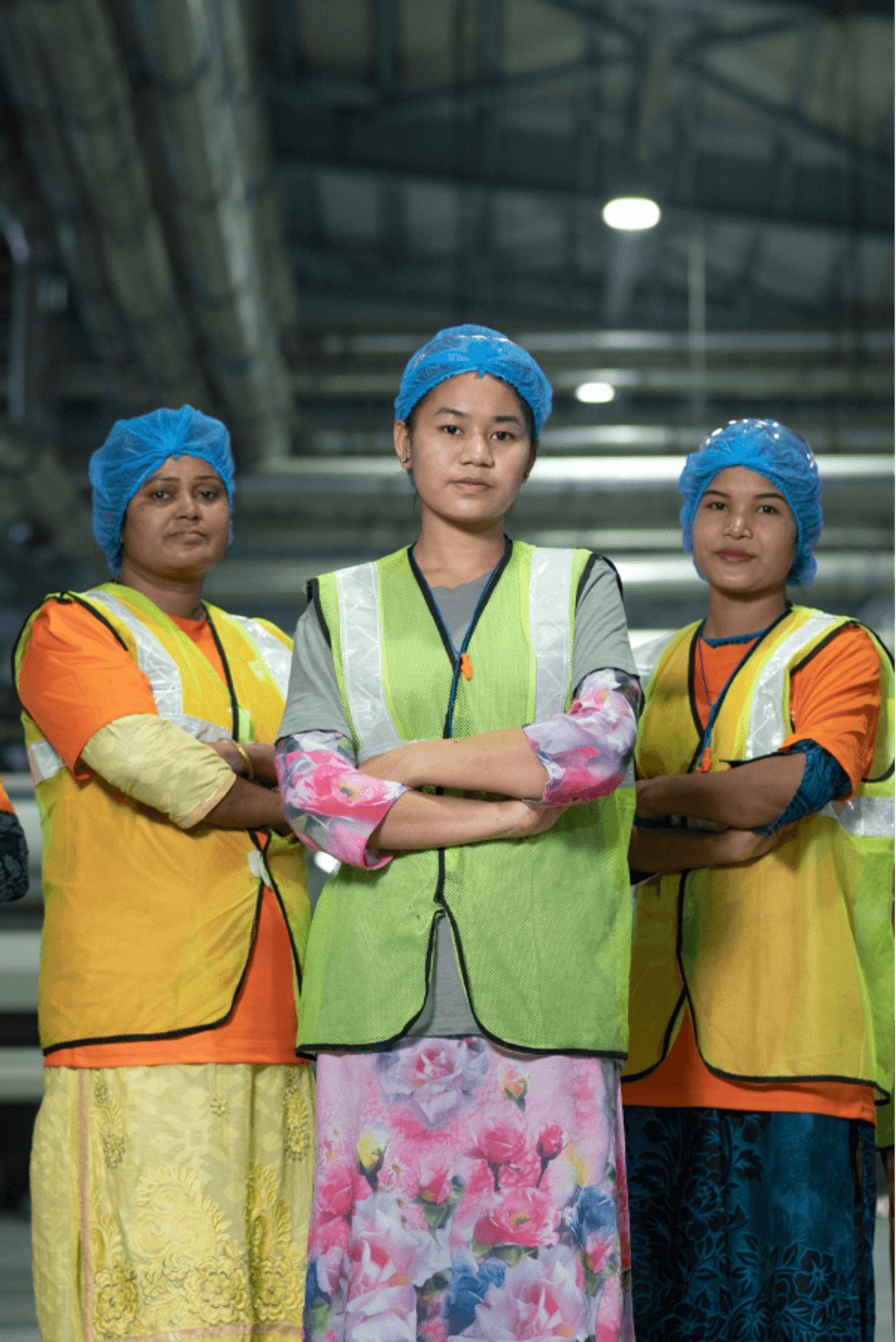
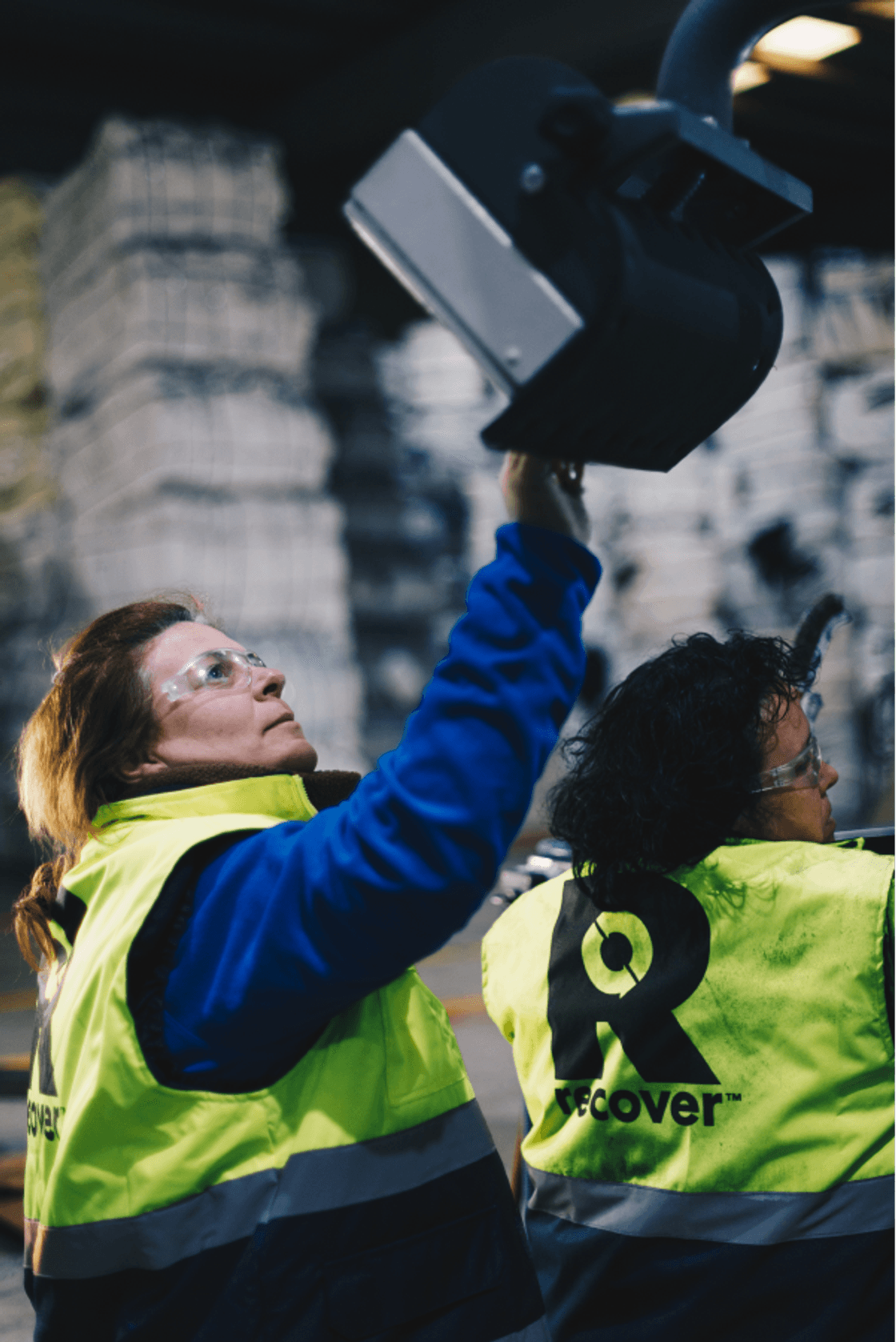
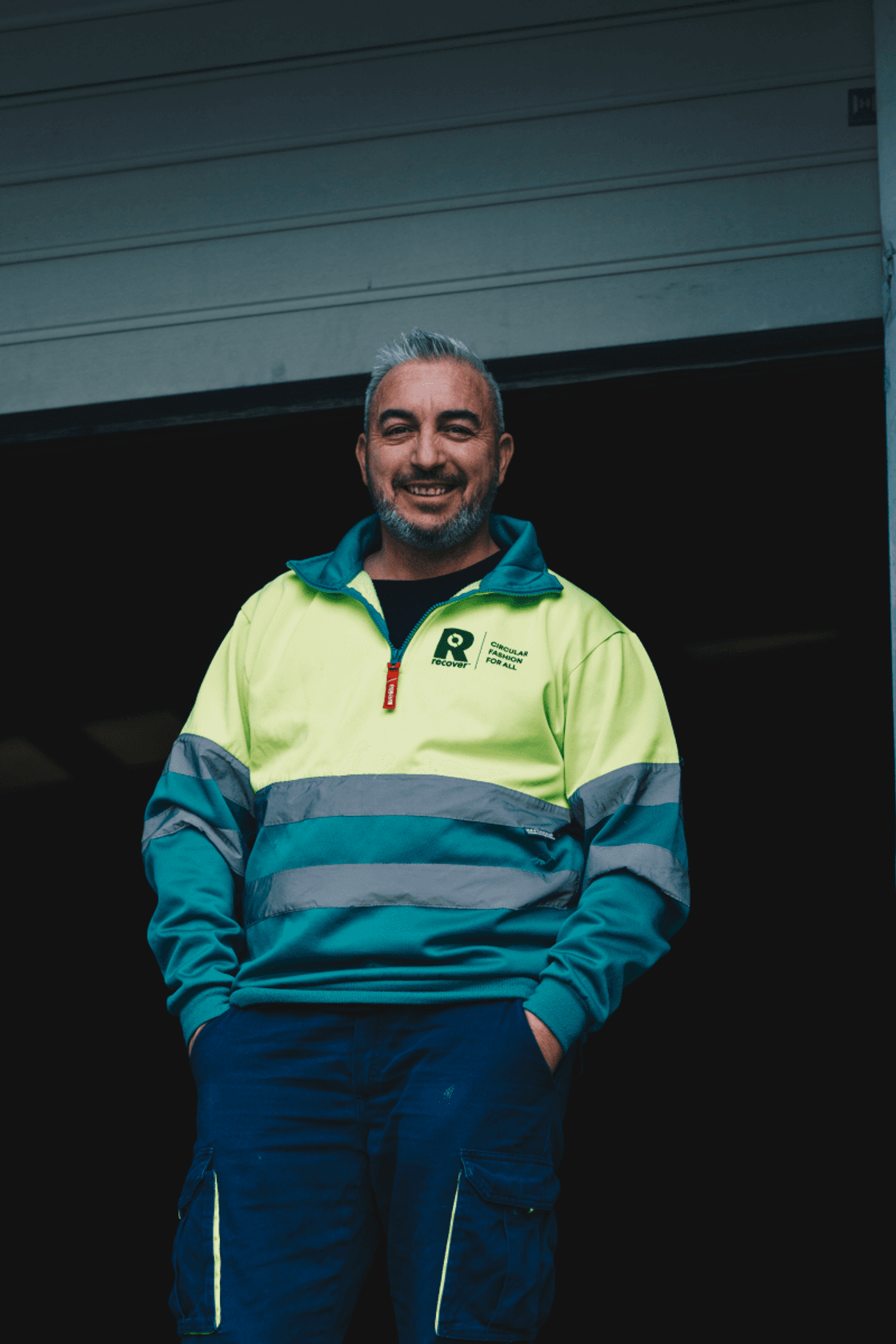
Read more on what we achieved in our Responsible production and supply chains sustainability pillar in our Sustainability Report 2023.
